8:00 AM – 1:00 PM Registration
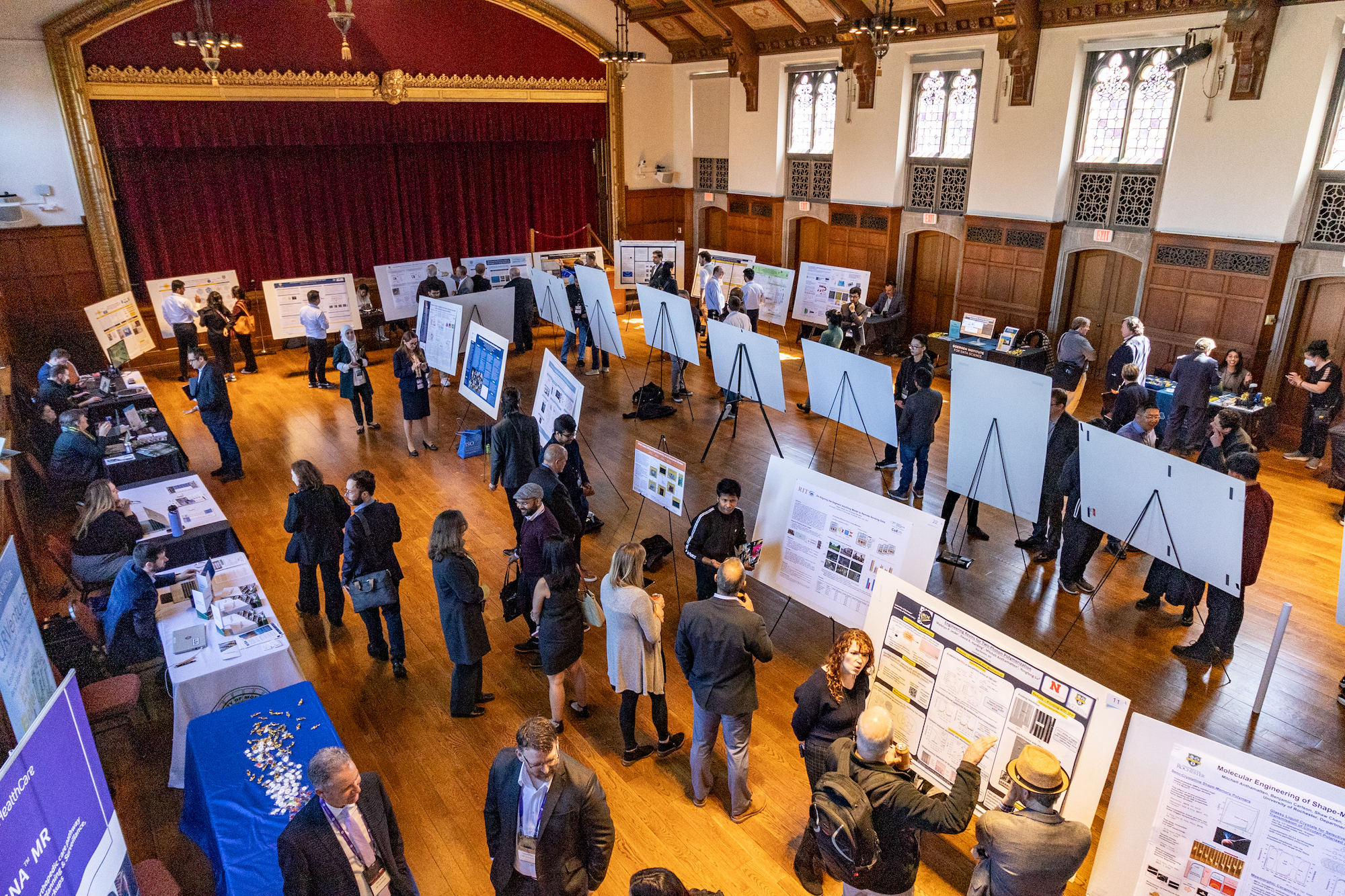
Finger Lakes Science and Technology Showcase
2024 Event Archive
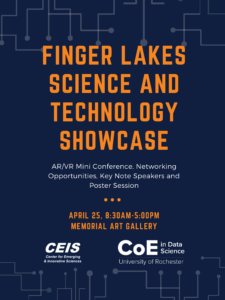
The Center for Emerging and Innovative Sciences and the Center of Excellence in Data Science at the University of Rochester hosted the 2024 Finger Lakes Science and Technology Showcase on April 25, 2024. Below is an archive of the event details, speaker bios and other information about the activities that day.
View 2024 Showcase Abstract Booklet
About the 2024 Showcase
The Showcase is an opportunity for researchers from the University of Rochester, Rochester Institute of Technology, and surrounding universities to present their work to industry as well as other researchers and organizations that promote economic development. The goal is to stimulate discussions that may lead to industry-university collaboration. The plenary sessions this year will highlight various aspects of intelligent imaging and what it could mean for the Rochester economy. Artificial Intelligence is being used in a wide range of technologies and in almost every sector of the economy. AI, combined with traditional forms of computer imaging, is revolutionizing the way images are captured, processed, analyzed, and displayed, ushering in the age of intelligent imaging.
Imaging in the Age of AI
Join the moderated discussion on how artificial intelligence is changing computer imaging and what it could mean for the Rochester economy.
Poster Session Contest
General categories include AR/VR; Biomedical Technology; Data Science; OPI; Sensors, Acoustics, and Materials. Students interested in participating in the poster session should complete the Poster Submission form. Poster submissions can be from all areas of Science and Technology. Cash prizes will be awarded to the top 3 posters.
Agenda
8:30 AM – 10:30 AM Western New York AR/VR Mini-Symposium
10:30 AM – 10:40 AM Break
10:40 AM – 11:00 AM Welcome remarks
11:00 AM – 11:30 AM Keynote Speaker Vaishali Kamat
11:30 AM – 12:30 PM Fireside Chat/Town Hall with Terry Clas, Joe Stefko, and Jan van Aardt
12:30 PM – 1:30 PM Lunch
1:30 PM – 2:30 PM Business/Faculty Networking and Matchmaking Pitch Session
2:30 PM – 5:00 PM Poster Session
4:00 PM – 5:00 PM Wine and Cheese reception
Special Guest Speakers
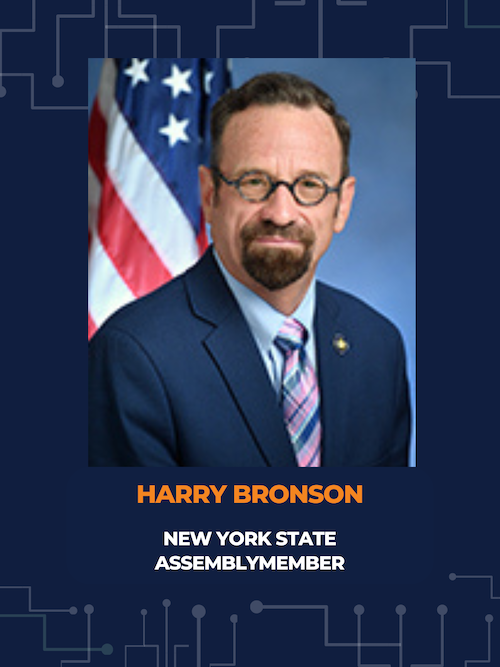
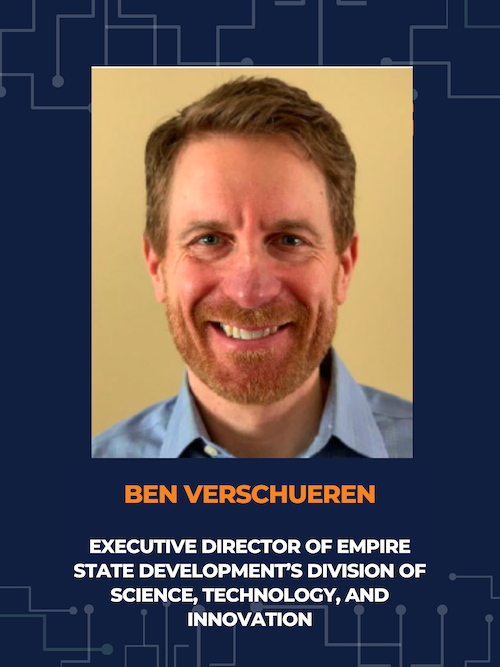
Featured Speakers

Western New York AR/VR Mini-Symposium Speakers

AR/VR Student Organizers
Special thank you to Qinqin Xiao, Mamunur Rashid, Adma Gama-Krummel, and Melissa Chen for your hard work in organizing the AR/VR mini-conference.
Speaker Bios
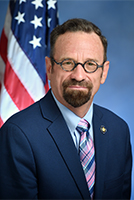 Harry Bronson was first elected to the New York State Assembly in November 2010. The 138th District includes parts of the City of Rochester and the suburban and rural towns of Henrietta and Chili. Before being elected to the state Assembly, he served in the Monroe County Legislature and held leadership positions during his entire tenure, including Minority Leader. As the Chair of the Assembly Standing Committee on Economic Development, Job Creation, Commerce and Industry, Harry oversees economic development and business regulation throughout New York State. Additionally, he is the Assembly’s Legislative Liaison to the Finger Lakes Regional Economic Development Council (FLREDC).
Harry Bronson was first elected to the New York State Assembly in November 2010. The 138th District includes parts of the City of Rochester and the suburban and rural towns of Henrietta and Chili. Before being elected to the state Assembly, he served in the Monroe County Legislature and held leadership positions during his entire tenure, including Minority Leader. As the Chair of the Assembly Standing Committee on Economic Development, Job Creation, Commerce and Industry, Harry oversees economic development and business regulation throughout New York State. Additionally, he is the Assembly’s Legislative Liaison to the Finger Lakes Regional Economic Development Council (FLREDC).
 Ben Verschueren is the Executive Director of Empire State Development’s Division of Science, Technology, and Innovation (NYSTAR). Ben took on the position in August 2023 after a distinguished career in industry. Ben spent most of his career in varying roles with GE, from hands-on research through managing strategic innovation portfolios at corporate and business unit levels. He established multiple innovation platforms and an incubator lab focused on funding a portfolio of projects building hands-on prototypes of exponential technologies applied to industrial ecosystems. He developed and nurtured multiple university and business partnerships and collaborations, from startups to large corporations. He also established GE Research’s formal IR&D portfolio, enabling deeper government collaboration and funding opportunities. Most recently, Ben was Director of Global Labs at Fluence, where he grew a global team and network of test facilities and labs responsible for finalizing next generation, grid-scale energy storage systems. Ben graduated with bachelor’s degrees in computer science and electrical engineering from Brown University, and a master’s degree in computer science from Rensselaer Polytechnic Institute.
Ben Verschueren is the Executive Director of Empire State Development’s Division of Science, Technology, and Innovation (NYSTAR). Ben took on the position in August 2023 after a distinguished career in industry. Ben spent most of his career in varying roles with GE, from hands-on research through managing strategic innovation portfolios at corporate and business unit levels. He established multiple innovation platforms and an incubator lab focused on funding a portfolio of projects building hands-on prototypes of exponential technologies applied to industrial ecosystems. He developed and nurtured multiple university and business partnerships and collaborations, from startups to large corporations. He also established GE Research’s formal IR&D portfolio, enabling deeper government collaboration and funding opportunities. Most recently, Ben was Director of Global Labs at Fluence, where he grew a global team and network of test facilities and labs responsible for finalizing next generation, grid-scale energy storage systems. Ben graduated with bachelor’s degrees in computer science and electrical engineering from Brown University, and a master’s degree in computer science from Rensselaer Polytechnic Institute.
 Vaishali Kamat brings extensive experience in digital health and medical technology, with
Vaishali Kamat brings extensive experience in digital health and medical technology, with
over 20 years in the industry. As GM, New Ventures within the Ultrasound Digital Solutions
team at GE HealthCare, she focuses on bringing innovative digital and AI technologies to
established and new users of diagnostic ultrasound. In addition to leading product
development efforts internally within the company, Vaishali also works with external
partners and collaborators to bring novel AI solutions to GE HealthCare ultrasound products.
Most recently, Vaishali has been leading the integration of the Caption Health business,
following its acquisition by GE HealthCare in 2023 and has helped launch the Caption
Cardiac Guidance solution on the Venue Point-of-Care ultrasound portfolio.
Prior to GE HealthCare, Vaishali led the Digital Health practice at Cambridge Consultants, a
leading technology and product development firm, headquartered in Cambridge UK. Here
she worked with a variety of MedTech and Pharmaceutical company clients to develop
innovative solutions that helped pioneer new care pathways and business models
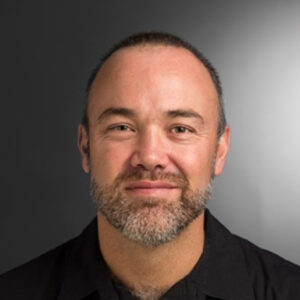 Dr. Jan Van Aardt is a Professor and the Interim Director of the Chester Carlson Center for
Dr. Jan Van Aardt is a Professor and the Interim Director of the Chester Carlson Center for
Imaging Science at the Rochester Institute of Technology. His research interests are in imaging
spectroscopy, lidar, and multi-temporal sensing, with various ecosystem and forestry projects,
e.g., land quality and global change (multi-temporal), forest and savanna structural assessment
using discrete and waveform lidar systems, and estimation of foliar chemistry and vegetation
state (imaging spectroscopy). Jan obtained a BSc Forestry degree (biometry and silviculture
specialization) from the University of Stellenbosch, South Africa. This was followed by a Hons.
Forestry degree with a remote sensing and Geographical Information Systems (GIS)
specialization, also from the University of Stellenbosch. Jan then completed MS and PhD
Forestry degrees at Virginia Polytechnic Institute and State University, Blacksburg, Virginia –
these degrees respectively focused on remote sensing applications in forestry. Prior to joining
RIT, Jan worked at the Katholieke Universiteit Leuven as post-doc and the Council for Scientific
and Industrial Research, South Africa, as research group leader.
 Terence J. Clas is a business development executive within NY State’s Division of Science, Technology and Innovation, Empire State Development. Responsibilities include supporting the NIST Manufacturing Extension Partnership (MEP) Program; specifically, the MEP Advanced Technology Team project providing support to industry, government and academic institutions by offering technical resources and collaboration opportunities available through the National MEP Network, Manufacturing USA Institutes and NY State resources. Previously, Terry served as the Corporate Vice President, New Business Development and General Manager of the Industrial Inspection Division at VFO, LLC. His career also includes, Executive Vice President, Marketing and Sales for VMP Nutrition. The majority of Terry’s career (27+ years) was at Eastman Kodak Company with a variety of leadership roles that centered on Manufacturing Systems Technology Development, in Corporate Research and Development. Terry also
Terence J. Clas is a business development executive within NY State’s Division of Science, Technology and Innovation, Empire State Development. Responsibilities include supporting the NIST Manufacturing Extension Partnership (MEP) Program; specifically, the MEP Advanced Technology Team project providing support to industry, government and academic institutions by offering technical resources and collaboration opportunities available through the National MEP Network, Manufacturing USA Institutes and NY State resources. Previously, Terry served as the Corporate Vice President, New Business Development and General Manager of the Industrial Inspection Division at VFO, LLC. His career also includes, Executive Vice President, Marketing and Sales for VMP Nutrition. The majority of Terry’s career (27+ years) was at Eastman Kodak Company with a variety of leadership roles that centered on Manufacturing Systems Technology Development, in Corporate Research and Development. Terry also
worked at Texas Instruments, Electro-Optical Division, Dallas Texas as a design engineer. Terry holds a Master of Science Degree from the National Technological University (NTU) in Technology Management and a Bachelor of Science Degree in Mechanical Engineering Technology from Buffalo State University.
 Joseph Stefko is President & CEO of ROC2025, the alliance of economic development organizations established in 2019 to lead a $20 million coordinated capacity-building investment strategy focused on accelerating regional growth in Greater Rochester. He previously spent nearly 20 years with Rochester-based CGR, including seven as President & CEO, overseeing the consultancy’s industry-leading work in government and education, economics and public finance, health and human services, and nonprofits and communities. From 2003-08 he served on senior staff of the emergency fiscal control board appointed by New York State to monitor the finances of the City of Buffalo and Buffalo Public Schools. During his tenure the board’s guidance contributed to more than $230 million in savings and created a strong foundation for the city’s revitalization. A Buffalo native, he holds B.A., M.A. and Ph.D. degrees from the University at Buffalo, SUNY.
Joseph Stefko is President & CEO of ROC2025, the alliance of economic development organizations established in 2019 to lead a $20 million coordinated capacity-building investment strategy focused on accelerating regional growth in Greater Rochester. He previously spent nearly 20 years with Rochester-based CGR, including seven as President & CEO, overseeing the consultancy’s industry-leading work in government and education, economics and public finance, health and human services, and nonprofits and communities. From 2003-08 he served on senior staff of the emergency fiscal control board appointed by New York State to monitor the finances of the City of Buffalo and Buffalo Public Schools. During his tenure the board’s guidance contributed to more than $230 million in savings and created a strong foundation for the city’s revitalization. A Buffalo native, he holds B.A., M.A. and Ph.D. degrees from the University at Buffalo, SUNY.
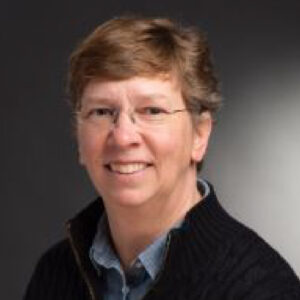 Wendy A. Dannels is an Associate Research Professor and the Director of the XR Accessibility
Wendy A. Dannels is an Associate Research Professor and the Director of the XR Accessibility
Solutions Laboratory (XR-ASL) within the National Technical Institute for the Deaf (NTID) – Deaf
Health Care and Biomedical Science Hub at Rochester Institute of Technology. Her team conducts research and develops real-time, immersive, and interactive technologies including mixed, augmented, and virtual reality with a focus on accessible and inclusive experience especially for deaf individuals. Dannels is principal investigator for a three-year research project, “Evaluating the Use of Mixed Reality Smart Glasses for Real-Time Captioning Display and Interpreting Services,” award from the National Institute on Disability, Independent Living, and Rehabilitation Research’s (NIDILRR) center within the Administration for Community Living (ACL), Department of Health and Human Services (HHS). Prior to joining NTID in 2008, Dannels worked for several engineering corporations for more than 17 years. Also, Ms. Dannels taught and tutored engineering-related courses for more than nine years. She is a subject matter expert in product design/development and digital engineering/manufacturing, especially from prototype or service to marketplace.
 Chao Peng is an Associate Professor of the School of Interactive Games and Media (SIGM) in
Chao Peng is an Associate Professor of the School of Interactive Games and Media (SIGM) in
the Golisano College of Computing and Information Sciences (GCCIS) at RIT. He is also a Resident Faculty of the RIT Center for Media, Arts, Games, Interaction & Creativity (MAGIC). Chao’s areas in computing are high-performance graphics, video game development, GPU-accelerated parallel computing, big data visualization, virtual reality, and 3D interaction. He is also an artist working on various kinds of digital art, including digital paintings, 3D models, 2D & 3D animated shorts, games, and other interactive arts.
Chao received his PhD and MS in Computer Science from Virginia Tech; his MFA in Computer Art from the University of Alaska Fairbanks, and his BArch in Architectural Design (buildings) from Hebei University of Engineering, China.
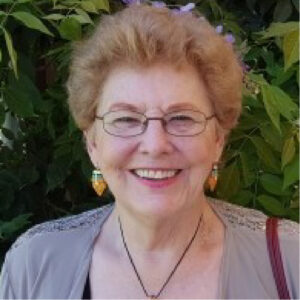 N. Katherine Hayles, the James B. Duke Professor of Literature at Duke University, teaches and
N. Katherine Hayles, the James B. Duke Professor of Literature at Duke University, teaches and
writes on the relations of literature, science and technology in the 20th and 21st centuries. She has published ten books and over 100 peer-reviewed articles, and her research has been recognized by a Guggenheim Fellowship, two National Endowment for the Humanities Fellowships, a Rockefeller Residential Fellowship at Bellagio, a National Humanities Center Fellowship, and a University of California Presidential Award, among other awards. She is a member of the American Academy of Arts and Sciences. Her books have won numerous awards, including the Rene Wellek Prize for the Best Book in Literary Theory in 1998-99 for How We Became Posthuman: Virtual Bodies in Cybernetics, Literature, and Informatics, and the Suzanne Langer Award for Outstanding Scholarship for Writing Machines. She teaches courses on experimental fiction, literary and cultural theory, finance capital and culture, science fiction, and contemporary American fiction. She has won two teaching awards and has held visiting appointments at Princeton, University of Chicago as the Critical Inquiry Visiting Professor, and the Institute for Advanced Studies at Durham University UK, among others.
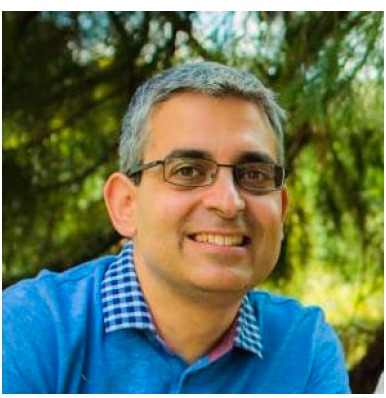 Andreas Georgiou is an Independent Consultant with Reality Optics Ltd, and he is particularly interested in computational optics for wave and geometrical optical design. He worked in diffractive optics for over two decades and over a decade in Mixed Reality optics. Andreas enjoys making new ideas into operating prototypes by combining physics, mathematics, engineering, and software. He particularly likes working with head-mounted displays, three-dimensional displays, sensors, and everything unusual with lenses and gratings inside. Before his current position, Andreas worked with many product groups at Microsoft (Surface, HoloLens, Azure, and Kinect), developed micro-confocal endoscopes for surgery, designed space instruments for Mars, and created the first genuinely holographic display. He obtained his PhD in optics from Cambridge University. He is an Engineering Research Fellow at Robinson College, Cambridge, where he continues to teach. He has over 30 patents and over 20 peer-reviewed publications on head-mounted displays, data storage, holographic displays, and data transmission.
Andreas Georgiou is an Independent Consultant with Reality Optics Ltd, and he is particularly interested in computational optics for wave and geometrical optical design. He worked in diffractive optics for over two decades and over a decade in Mixed Reality optics. Andreas enjoys making new ideas into operating prototypes by combining physics, mathematics, engineering, and software. He particularly likes working with head-mounted displays, three-dimensional displays, sensors, and everything unusual with lenses and gratings inside. Before his current position, Andreas worked with many product groups at Microsoft (Surface, HoloLens, Azure, and Kinect), developed micro-confocal endoscopes for surgery, designed space instruments for Mars, and created the first genuinely holographic display. He obtained his PhD in optics from Cambridge University. He is an Engineering Research Fellow at Robinson College, Cambridge, where he continues to teach. He has over 30 patents and over 20 peer-reviewed publications on head-mounted displays, data storage, holographic displays, and data transmission.
Business/Faculty Networking and Matchmaking Pitch Representatives
At Circle Optics, they provide aerospace, autonomous systems, and entertainment verticals with the most accurate imaging to support situational awareness and immersive experiences. They are experts who deliver flawless quality that embodies our principles in Know-How, Synergy, Innovation. They influence a culture of “What if?” From this, we have created the opportunity to build Circle Optics as a world leader in 360° imaging.
Businesses, governments, and non-profits use EagleHawk to reduce expenses and risk by proactively approaching large-scale facility asset management. EagleHawk will work closely with your team to compile all the necessary background and logistical information to plan the data collection flights. This mission planning process involves close coordination with your organization’s safety and policy compliance departments to ensure that the proper procedures and communication plans are followed.
In 2017 New York State founded the Rochester Data Science Consortium, with funding from the Empire State Development Corporation and strategic support from the University of Rochester, the L3Harris Corporation, and Danny Wegman, to bring the benefits of data science to the Upstate New York economy. Although RDSC had a fixed term, our team decided to stay together and founded FLX AI as a commercial entity. Today we provide one of the deepest and most accessible talent pools in AI, Machine Learning, and Data Science in the Upstate region. As a multi-disciplinary team with experience working with business, government, and academic institutions, we offer scalable solutions that deploy artificial intelligence and big data to the cloud. We build platforms to gather, process, and analyze data and create models that generate insights and actionable predictions. Whether you have a specific project in mind or require guidance in how
LighTopTech Corp. is a women-owned business based in Rochester, NY. LighTopTech, an optical technology company, was founded in 2013. LighTopTech’s vision is to build innovative optical instruments to bring to market disruptive technologies for non-destructive imaging in industrial fields, and noninvasive imaging and guided surgery in medical fields. LighTopTech’s mission is to create new possibilities in medical imaging and materials manufacturing towards a better collective future with our biomimetic noninvasive imaging technology.
In a fast-moving and increasingly complex world, L3Harris is anticipating and rapidly responding to challenges with agile technology – creating a safer world and more secure future. At L3Harris, they anticipate and mitigate risk with end-to-end solutions that meet customers’ mission-critical needs across all domains.
Enabling the human side of healthcare – At GE HealthCare, they see possibilities through innovation. They’re partnering with our customers to fulfill healthcare’s greatest potential through groundbreaking medical technology, intelligent devices, and care solutions. Better tools enabling better patient care. Together, they are not only building a healthier future but living their purpose to create a world where healthcare has no limits.
Ajay Anand is currently Associate Professor and Deputy Director of the Goergen Institute for Data Science at the University of Rochester. He is also affiliated with the UR Health Lab at URMC. Prior to joining the University of Rochester, Ajay was with Philips Healthcare North America and Carestream Health as a senior research scientist and technical project leader. His recent research has focused on the development of novel machine learning-based methods combined with real-time acoustic signal processing for image-guided therapies, quantitative noninvasive imaging biomarkers, and automated vascular diagnosis in point-of-care ultrasound. His research interests include biomedical signal processing, time-series analysis, and physics-based machine learning. He is a co-inventor on more than 45 patents. Ajay received his M.S. degree in Biomedical Engineering from the University of Texas Southwestern Medical Center, Dallas, TX, and M.S. and Ph.D. degrees in Electrical Engineering from the University of Washington, Seattle.
Dimah Dera specializes in robust and trustworthy modern machine learning (ML) solutions for real-world applications, including healthcare, cybersecurity, remote sensing, and surveillance systems. In the rapidly evolving landscape of artificial intelligence (AI) and autonomous systems, the integration of ML techniques has paved the way for unprecedented advancements across various domains. The robustness, safety, and reliability of AI systems have emerged as pivotal requirements. The scope of her research includes developing innovative techniques to ensure the robustness, safety, and reliability of AI systems by integrating Bayesian theory and statistical signal processing foundations into modern ML frameworks. This research highlights the intricate connections between learning Bayesian uncertainty in ML models and their robustness and safety awareness to dynamically changing environments and systems failure. This research advances theoretical and algorithmic knowledge that will transcend traditional ML and AI systems toward safe and reliable deployment of AI models in high-risk real-world applications. Dimah received the National Science Foundation (NSF) Computer and Information Science and Engineering Research Initiation Initiative (CRII) in 2023 for her research focusing on robust machine learning and time-series analysis. She won multiple awards, such as the Best Paper Award at the 2019 IEEE International Workshop on Machine Learning for Signal Processing (MLSP’19) and the IEEE Philadelphia Sections Benjamin Franklin Key Award (2021). She publishes regarding trustworthy, reliable, and expandable machine learning, signal and image processing and optimization.
Marvin M. Doyley received his PhD degree in biophysics from the Institute of Cancer Research (Sutton), University of London Imperial College. Following post-doctoral training at Erasmus University in the Netherlands and Dartmouth College in Hanover, NH, he joined the faculty of the Department of Electrical and Computer Engineering at the University of Rochester in 2008. Dr. Doyley is the Wilson Professor of Electronic Imaging and is currently Chair and Professor of the Department of Electrical and Computer Engineering, with joint appointments in the Departments of Biomedical Engineering and Imaging Sciences. His research team at the University of Rochester concentrates on non-invasive vascular elastography, high-frequency nonlinear ultrasound imaging, and structural and functional imaging of pancreatic and colorectal cancer. Dr. Doyley is a fellow of the IEEE (Institute of Electrical and Electronics Engineers), AIUM (American Institute of Ultrasound in Medicine), AIMBE (American Institute for Medical and Biological Engineering), and the Asia-Pacific Artificial Intelligence Association (AAIA). He currently serves on the editorial boards of IEEE Transactions on Ultrasonics, Ferroelectrics, and Frequency Control, SPIE Journal of Medical Imaging, Physics in Medicine and Biology, and Nature Scientific Reports.
Wayne H. Knox obtained BS (1979) and PhD degrees (1983) at The Institute of Optics, University of Rochester in Rochester, NY. He worked at Bell Labs Advanced Photonics Research in Holmdel NJ 1984-2001. In April 2001 he returned to The Institute of Optics as Director (2001-2011) and Professor of Optics where he currently conducts a research program in ultrafast nonlinear optics and applications in vision correction. He is also Professor of Physics, Materials Science and Vision Science, and Chief Science Officer at Clerio Vision, a company that he co-founded in 2014. He is a Fellow of the Optical Society of America and a Fellow and Life member of the American Physical Society, and Fellow of the National Academy of Inventors. At the University of Rochester, he teaches Optical Engineering Senior Design and Senior Thesis classes.
Professor McGrath graduated from Arizona State in 1991 with a BS degree in mechanical engineering. He earned a master’s degree in mechanical engineering from MIT in 1994 and a PhD in biological engineering from Harvard/MIT’s Division of Health Sciences and Technology in 1998. He then trained as a Distinguished Post-doctoral Fellow in the Department of Biomedical Engineering at the Johns Hopkins University. Since 2001, Professor McGrath has been on the Biomedical Engineering faculty at the University of Rochester and served the department for over 10 years as the first director of the BME graduate program. While historically, Professor McGrath’s research focused on the phenomena of cell migration, since 2007 he has been leading the Nanomembrane Research Group – a highly interdisciplinary, multi-institutional team that is developing and applying ultrathin silicon ‘nanomembrane’ technologies. Professor McGrath is also a co-founder and past president of SiMPore Inc. a company founded to commercially manufacture the nanomembranes. In 2023 he was appointed the William R. Kenan, Jr., Professorship. He was also a recipient of the Edmund A. Hajim Outstanding Faculty Award in 2019, and in 2015 he was elected as a Fellow of the American Institute for Medical and Biological Engineering (AIMBE).
Chenliang Xu is an Associate Professor in the Department of Computer Science at the University of Rochester. He received his Ph.D. in Computer Science from the University of Michigan in 2016, an M.S. in Computer Science from the University at Buffalo in 2012, and a B.S. in Information and Computing Science from Nanjing University of Aeronautics and Astronautics, China, in 2010. His research originates in computer vision and tackles interdisciplinary topics, including video understanding, audio-visual learning, vision and language, and methods for trustworthy AI. Xu is a recipient of the James P. Wilmot Distinguished Professorship (2021), the University of Rochester Research Award (2021), the Best Paper Award at the 17th ACM SIGGRAPH VRCAI Conference (2019), the Best Paper Award at the 14th Sound and Music Computing Conference (2017), and the University of Rochester AR/VR Pilot Award (2017). He has authored over 100 peer-reviewed papers in computer vision, machine learning, multimedia, and AI venues. He served as an associate editor for IEEE Transactions on Multimedia and an area chair/reviewer for various international conferences.
